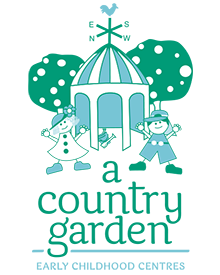Australia is a community built on many different cultures from countless nationalities, so fostering a sense of acceptance and understanding from a young age is more important than ever. Early childhood social development significantly shapes our children's perceptions and attitudes towards diversity and inclusion.
In this article, our team at A Country Garden focuses on effective strategies for teaching diversity and inclusion from the pre-kindergarten age, with a special emphasis on the Montessori approach. Understanding and embracing cultural diversity in early childhood education helps create a foundation for empathy, respect, and lifelong learning.
Understanding Cultural Diversity and Inclusion in Early Childhood Education
Diversity encompasses the unique differences among individuals that make us stronger as a society, including race, ethnicity, gender, ability, and socio-economic background. Inclusion, on the other hand, is the practice of ensuring that all children feel valued and accepted, regardless of these differences.
Why is inclusion important in early childhood education and social development?
Research shows that children exposed to diverse environments are more likely to develop empathy, respect, and understanding towards others. According to a study by the National Association for the Education of Young Children (NAEYC), inclusive classrooms enhance social interactions and reduce prejudices among children. Building such a foundation benefits their social development and prepares them for a diverse world, making inclusion a critical component of preschool education.
The Montessori Approach to Diversity and Inclusion in Pre-Schools & Beyond
Montessori preschools are renowned for their child-centred approach to education. The philosophy naturally supports diversity and inclusion by promoting respect for all individuals and their unique contributions. Dr. Maria Montessori, the founder of the Montessori method, believed that education should foster peace and understanding, which is fundamental to teachings that promote inclusion and acceptance.
Pre-kindergarten Montessori classrooms are designed to be inclusive, providing an environment where children of all backgrounds and abilities can thrive and learn in a way that best suits their needs. For instance, multi-age groupings in Montessori settings encourage older children to mentor younger ones, fostering a sense of community and acceptance. The Montessori curriculum emphasises hands-on, experiential learning, accommodating different learning styles and abilities, ensuring every child can participate fully.
Strategies for Fostering a Culture of Acceptance
Incorporate Diverse Materials and Resources
Use books, toys, and learning materials that reflect various cultures and backgrounds. Research indicates that exposure to diverse materials can enhance children's understanding and appreciation of different cultures. For example, a study by the Cooperative Children's Book Centre found that children who engage with diverse literature show increased empathy and reduced bias.
Ensure classroom decorations, such as posters and artwork, represent a variety of cultures and communities.
Celebrate Different Cultures and Traditions
· Organise activities and celebrations that honour various cultural backgrounds. For example, celebrating cultural festivals can help children learn about and appreciate different traditions. Schools can host multicultural days where children and families share their cultural heritage through food, music, and storytelling.
· Incorporate cultural traditions into daily routines, such as greeting children in different languages or exploring music from various cultures during circle time.
Encourage Open Conversations
Facilitate age-appropriate discussions about diversity and acceptance. Teachers can use stories or current events to discuss these important topics as conversation starters. For instance, reading a book about a child from a different culture can lead to discussing similarities and differences.
Encourage children to share their own experiences and listen to others, fostering empathy and understanding. Role-playing and interactive activities can also help children express their thoughts and feelings about diversity.
Model Inclusive Behaviour
Teachers and caregivers play a crucial role in modelling acceptance and inclusive behaviour. Creating an environment where every child feels valued and included sets a powerful example for young learners. Educators should respect and appreciate all cultures and abilities when interacting with children and colleagues.
Use inclusive language that respects and acknowledges diversity. For example, using gender-neutral terms and avoiding stereotypes in communication and activities.
Create Collaborative Learning Opportunities
Engage children in group activities that promote teamwork and understanding. Inclusive games and projects encourage children to work together and appreciate each other's unique strengths. Activities such as cooperative art projects or group science experiments can highlight the importance of diverse perspectives and collaboration.
Design classroom setups that facilitate interaction and cooperation, such as arranging desks in clusters or having a communal workspace.
Learn More on Inclusion and Cultural Diversity in Early Childhood Education
Teaching diversity and inclusion in early childhood is essential for nurturing empathetic, respectful, and open-minded individuals. Montessori pre-schools like A Country Garden, with our inclusive philosophy and child-centred approach, provide an excellent model for fostering a culture of acceptance.
To learn more about our offerings, please feel encouraged to speak with our friendly team today.








